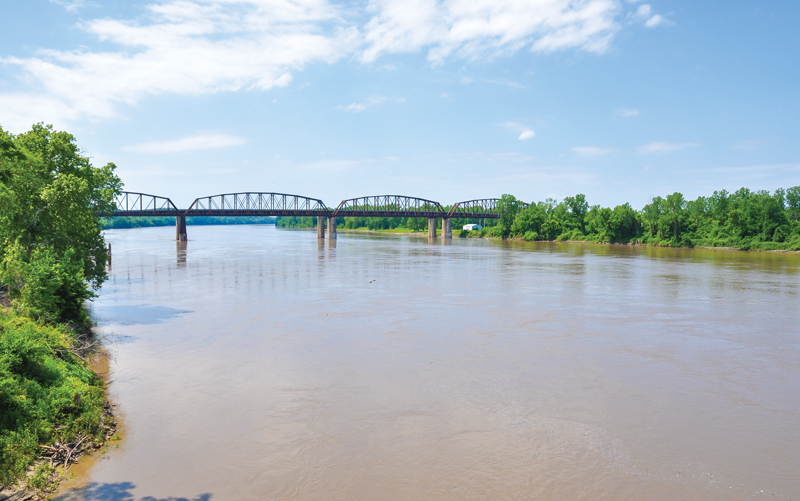
If the title of “Great River Road National Scenic Byway Along the Mississippi River” evokes images of riding next to one of the mightiest waterways in America, well, it should. But at least in Missouri, it’s a bit of a misnomer. Great River Valley Road might be more accurate, and the highways there rank among the best I’ve ridden.
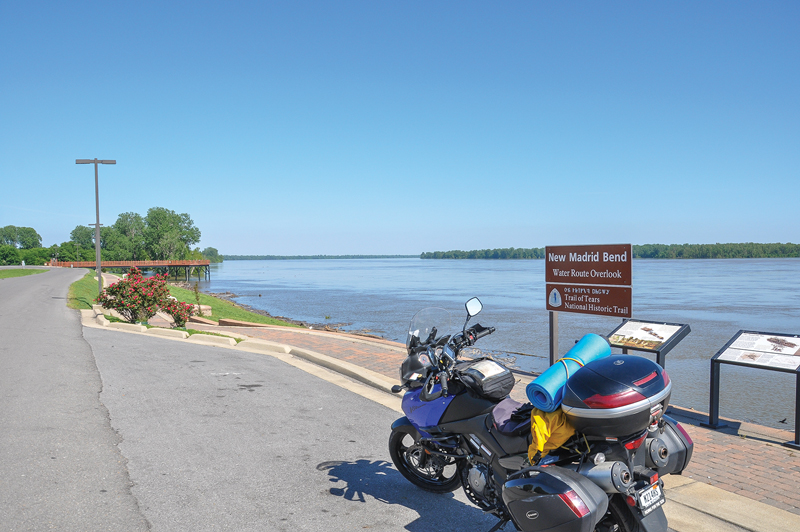
I crossed the Mississippi River at Keokuk, Iowa, and turned south onto U.S. Route 61, designated a Great River Road on signs and maps by lines radiating from a green circle. Soon, I was rumbling along gently rolling pavement among farm fields and pastureland that bore evidence of recent flooding. And while I mostly avoided rain, high water was a constant companion on this ride.
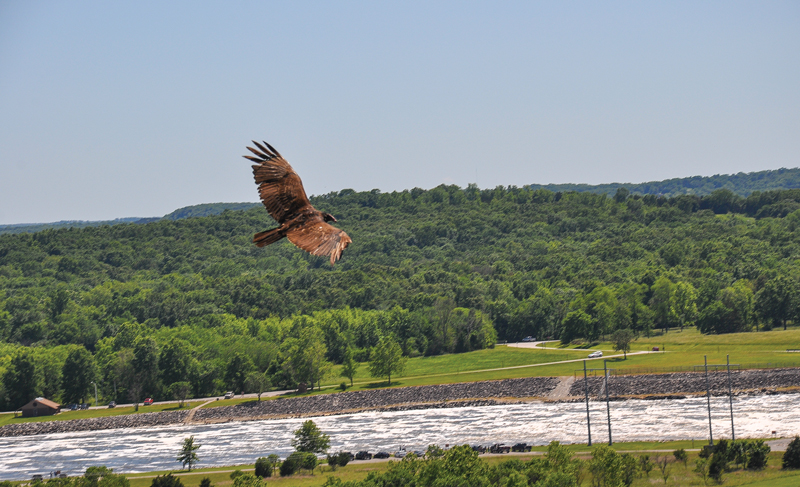
At Hannibal, Missouri Route 79 was my choice. And what a great run: twisty and tight with brief glimpses of the river all the way to the town of Louisiana. The route swings west at Clarksville while retaining the River Road label, but I wouldn’t see the Mississippi again until I rode into Saint Louis. Turning east on Interstate 70, I was soon downtown. Wanting an unobstructed view of the Gateway Arch, I crossed the river on the Eads Bridge onto Illinois Route 3 and turned down a rough side road to the Mississippi River Overlook Park. The park has a 40-foot observation deck and is touted as the best spot to see the arch and city skyline.
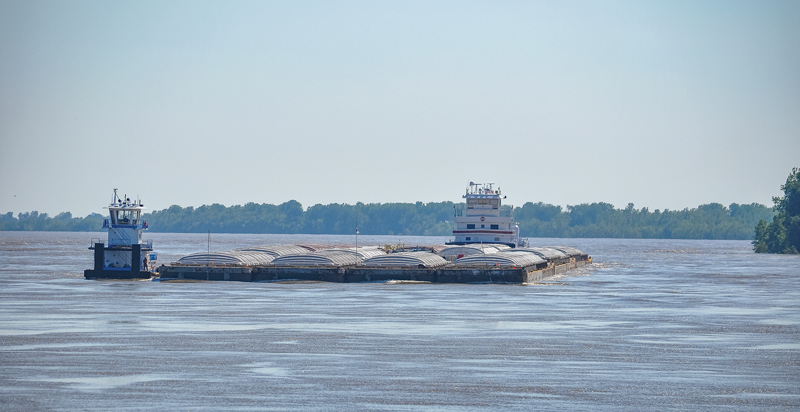
When it was time to chase the river roads again, I took Interstate 55 south and exited on U.S. 61 at Pevely. From there the two routes play tag all the way to the Arkansas border, occasionally sharing the same tarmac. At one point the superslab was the only option due to flooding. Ste. Genevieve offered the promise of seeing a genuine Mississippi River ferry crossing. But not on that day, as its dock was underwater. I did pick up one souvenir: a drywall screw in my Suzuki V-Strom’s rear tire. My repair kit saved the day and after lunch at the Anvil Restaurant & Saloon I was on my way.
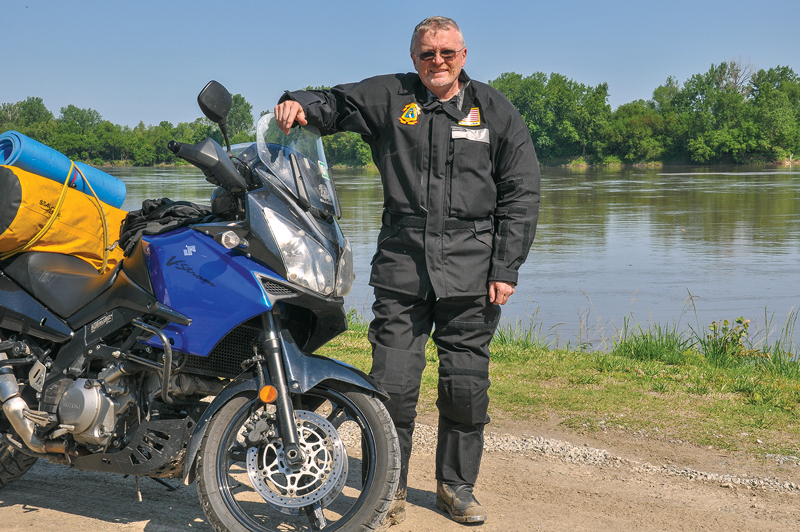
New Madrid is the home of the famous fault that seismologists say will one day spur the Midwest’s very own Big One. By this point all the dams are upstream and the Mississippi widens to massive proportions. After watching towboats organize barges, I headed south and didn’t detour until I exited onto U.S. Route 412. The map indicated the lowest point in Missouri was a few miles off the highway. While I have no doubt this was accurate, I didn’t bother checking for a marker, as much of the area was also underwater.
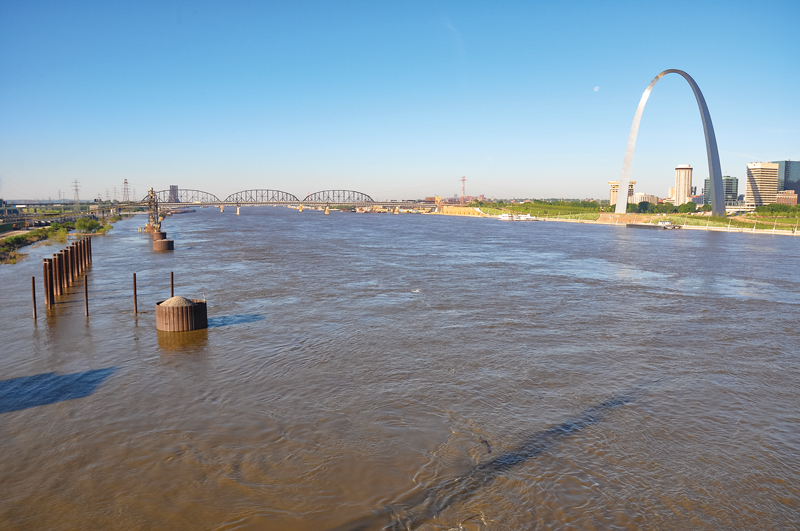
After a few days in Arkansas, I took U.S. Route 67 back into Missouri. Rumored road closures inspired me to alter my route west from U.S. Route 160 to U.S. Route 60. Not a bad swap, as the lightly-traveled rolling four-lane cuts through the heart of the Ozarks and offers spectacular scenery.
At Mountain Grove, I turned north on Missouri Route 95 and cut across some excellent county roads to Missouri Route 5. Like many secondary routes, these were posted 55 mph. It may sound weird, but I often felt this was too fast. I like brisk riding as much as the next guy, but when steep climbs and descents often include blind 90-degree turns it’s easy to get in over your head. Still, at one point, enthusiasm overruled caution as I tried to hang with a local Ducati rider. Yeah, right. Armed with a lighter bike, superior ability and road familiarity, he left me in the dust.
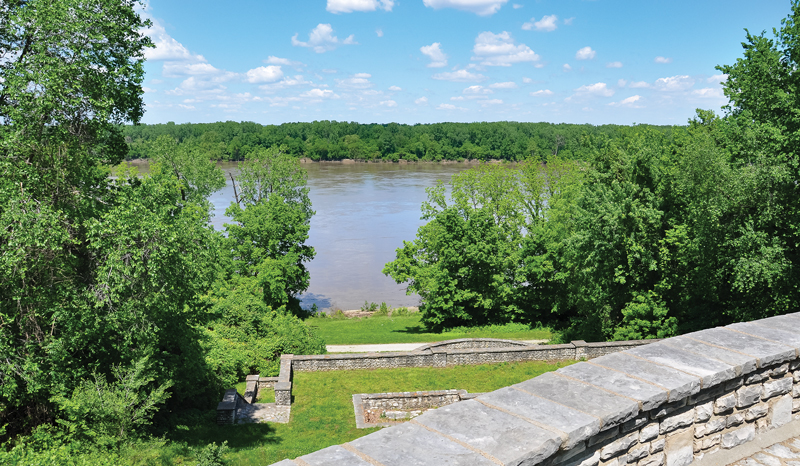
Missouri Route 5 intersects with Missouri Route 7 at Camdenton. Just outside of Warsaw I checked out the Harry S. Truman Dam and Reservoir, which is operated by the Army Corps of Engineers. The visitor’s center is perched high on Kaysinger Bluff and is a sight to behold. An historical society leases property on the grounds and hosts Warsaw Pioneer Heritage Days each October in a replica 1850s village, a good excuse for a fall ride through the Ozarks.
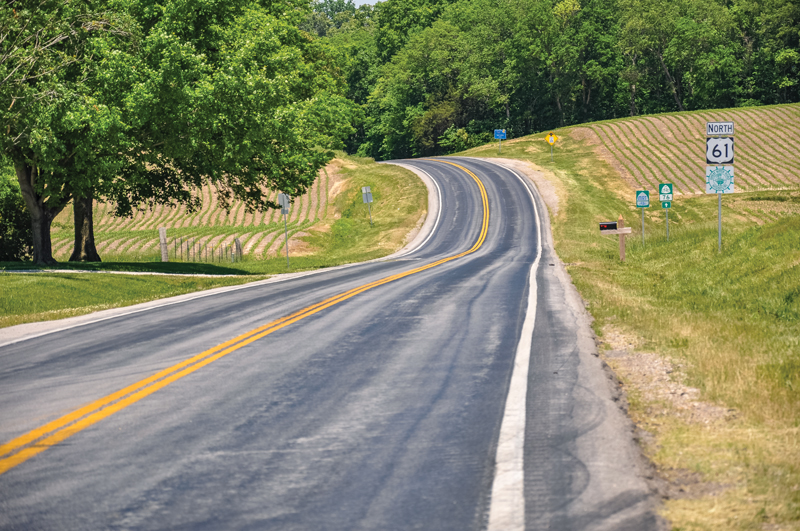
West of Warsaw, the road levels and straightens. Kansas City is a favorite of mine, but on this ride, I bypassed it and headed east on U.S. Route 24 to follow the state’s other big waterway, the Missouri River. More so than the Mississippi, it fulfilled my vision of what river road riding should be.
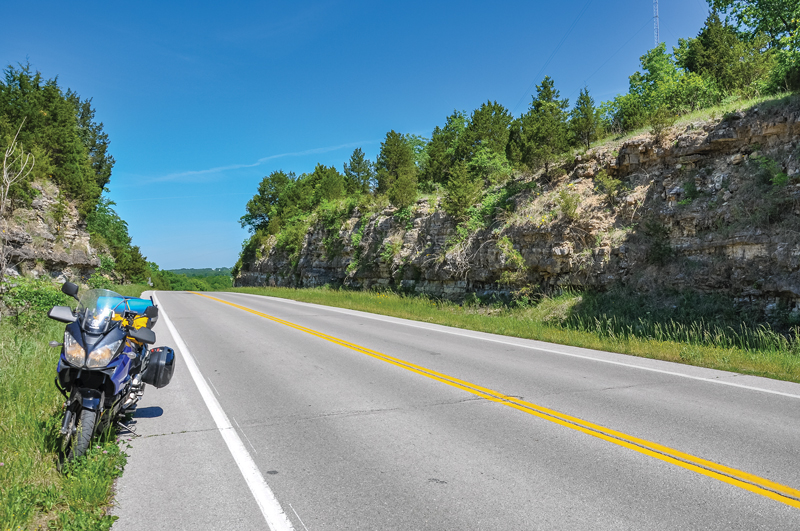
A voluntary detour at Napoleon put me on Missouri Route 224, which runs very close to the water; silt from recent flooding was evident in many places. I watched the Big Muddy roll by for a while at a riverside park maintained by the Army Corps of Engineers and then headed for Lexington, which hosted a major Civil War battle in 1861. The Lafayette County Courthouse retains a memento: a cannonball lodged in one of its columns.
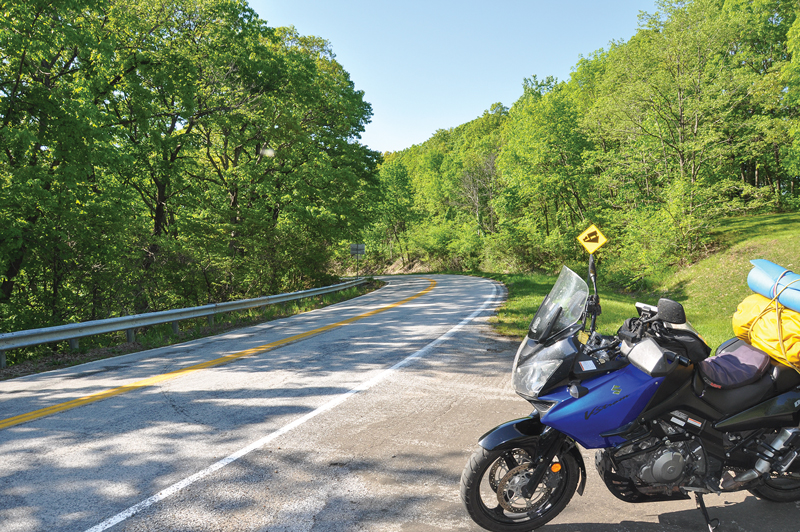
East of Lexington, U.S. 24 reappeared. I took it as far as Waverly, hometown of Confederate General J.O. Shelby. From there, U.S. Route 65 was my choice to Marshall. Then I stumbled onto the Steve McQueen Memorial Highway, a stretch of Missouri Route 240. It passes through the farming town of Slater, where the megastar spent much of his childhood. The town planned to honor McQueen with a bike and car show later in the summer. I think he would have appreciated that.
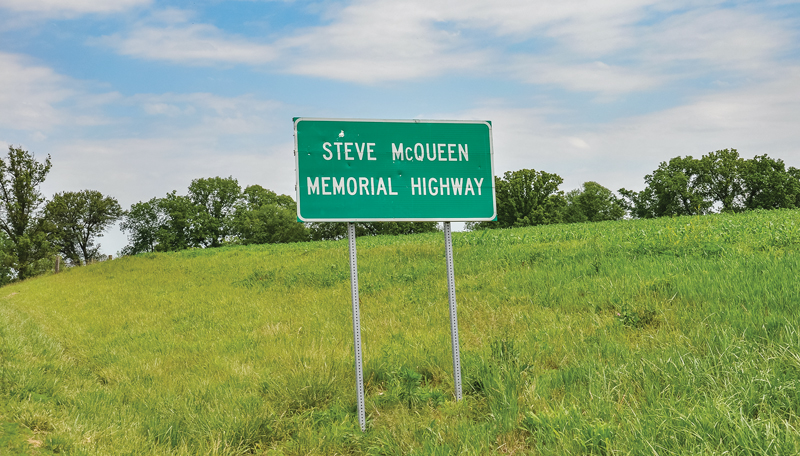
Next stop was Glasgow, site of an 1864 Civil War battle and home of the “World’s First Multiple-Span All-Steel Bridge” east of the confluence of the Missouri and Chariton rivers. Another draw is the Rolling Pin, where I brunched with a trio of friendly local ladies. One, in her 80s, remarked how much fun a motorcycle ride would be. Maybe I should start carrying an extra helmet.
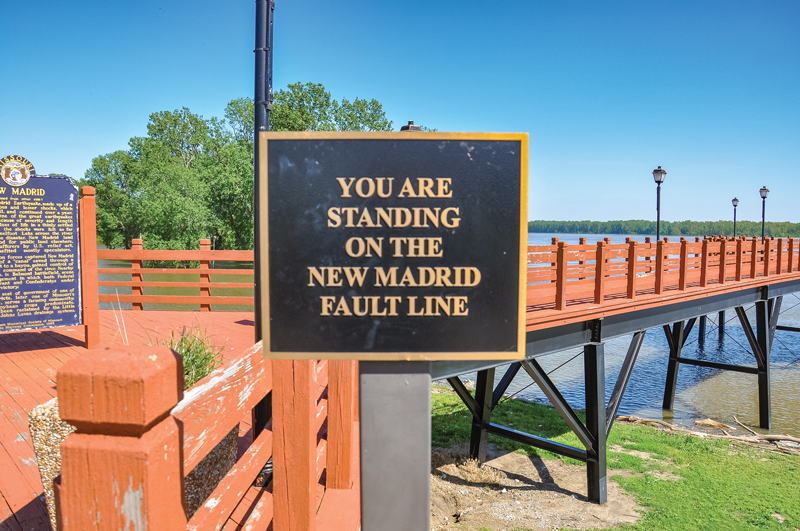
I left Glasgow on Missouri Route 87, another rider’s road that is rolling, tight and twisty with an excellent surface. Missouri Route 179 was almost as entertaining with the bonus of hugging the river in many places. A friend recommended Missouri Route 94 for the run from Jefferson City to Saint Louis, another great one, with rolling sweepers—fifth- and sixth-gear stuff on the Strom liberally sprinkled with stretches of second- and third-gear twisties. A section of the Katy Trail State Park, the longest rails-to-trails project in America, runs along the highway. One day I’ll tackle it on my pedal bike and watch the motorcycles fly by for a change.
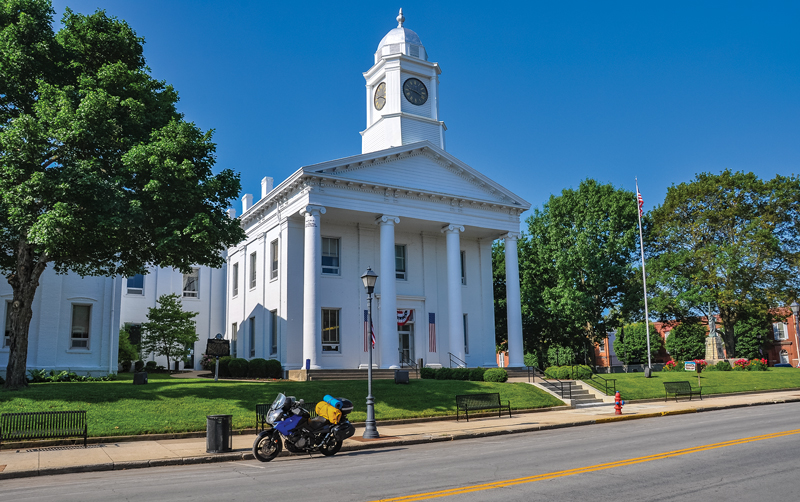
Kansas City to Saint Louis is normally four hours on I-70. Running the back roads more than tripled that, but it was time well spent. My last stop was the Mississippi-Missouri confluence at the Columbia Bottom Conservation Area, north of Saint Louis. It too had been underwater a few days before. The gate was open, so I rode three miles of graded gravel to the spot where the two mighty rivers converge, a magnificent sight and a fine finish to my Show-Me State ride.
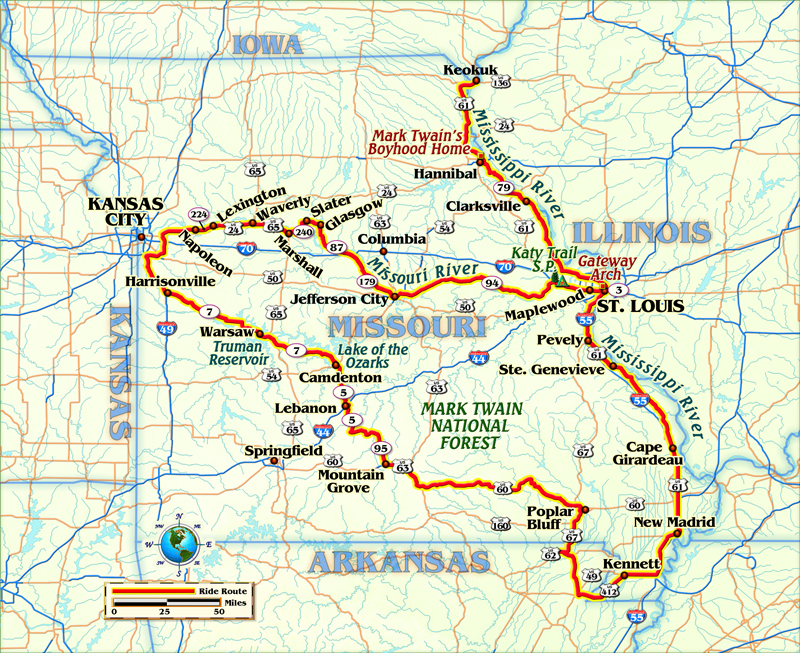
Motorcycling St. Louis
Saint Louis is a fine stopover for riders, with numerous motorcycle museums and shops, each with a unique personality. The Moto Museum complex, for example, includes a Ducati-KTM-Triumph dealership and the Triumph Café. The museum features dozens of expertly restored machines in professionally constructed exhibits. European marques predominate. The café offers reasonably priced dishes and lots of memorabilia. Moto is just the place to spend a couple hours checking out cool machines and grabbing a bite to eat.
On the southwest side, the Mungenast Classic Automobile and Motorcycle Museum pays tribute to automobile and motorcycle dealer Dave Mungenast. Dave competed in nine International Six Day Trials and performed stunts in Burt Reynolds’ “Hooper” and “Cannonball Run” movies. The collection includes more than 350 bikes, some rare, others common. Among the former is an Excelsior-Henderson once owned by Steve McQueen. As for the latter, there was an example of my first new motorcycle, a 1972 Suzuki 90. The motocross collection likewise includes dozens of exotic European machines. But what caught my eye was a 1974 Suzuki TM125—much like the one I broke my leg on.
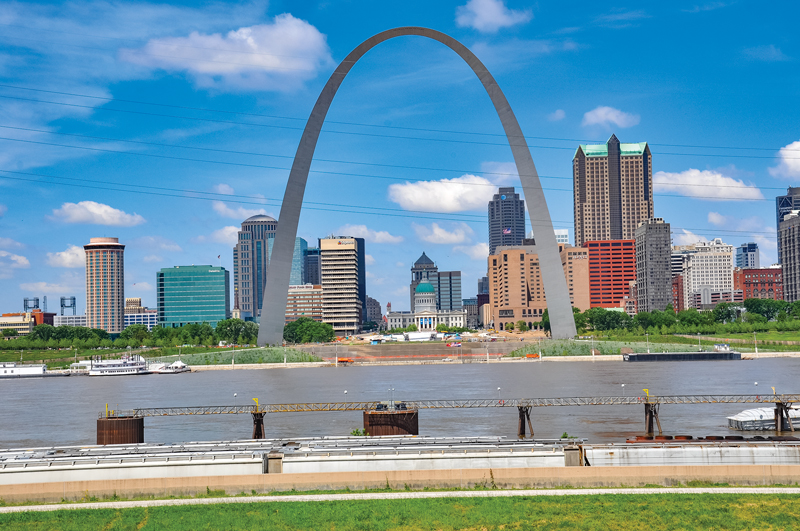
the “Gateway to the West.”
The guys at Mungenast told me to check out Classic Motorcycle Company, a rebuilding and export operation run by a jovial Australian named Mike Kiernan. The shop doesn’t have a storefront, per se. Instead, work on an eclectic variety of bikes is performed in two packed buildings, one doubling as a display area. A coffee bar was also attempted, but it didn’t work out. Nevertheless, visitors are still offered a stiff cup of joe.
Mike directed me to Flying Tigers in nearby Maplewood, which was originally a multi-brand repair shop that worked on almost anything, a 1961 Sportster acquired in several baskets being one example. Flying Tigers still offers that service, but is also a franchised Moto Guzzi, Royal Enfield, Zero and Genuine Scooter agency. Owner Eric Bess also creates customs favoring the minimalist approach, such as his stripped-down Kawasaki ZRX1200 café brat. In August, he’ll ride the Kawasaki from Spokane, Washington, to Sturgis as an entry in the Rebel Yell Bourbon bike build-off. Eric showed me a new Moto Guzzi V9 Bobber that was also getting the Flying Tigers treatment for another Rebel Yell promotion.
Eric recommended a ride to Donelson Cycles. The northside shop was established in 1962 and sells Hondas, Yamahas, Triumphs and Ducatis and offers parts for vintage BSAs, Triumphs and Nortons. The in-house Carl Donelson Museum centers on dirt-track racing. Along with historic machines once piloted by top riders, the collection showcases leathers, posters and other memorabilia.
Keep scrolling for more photos:
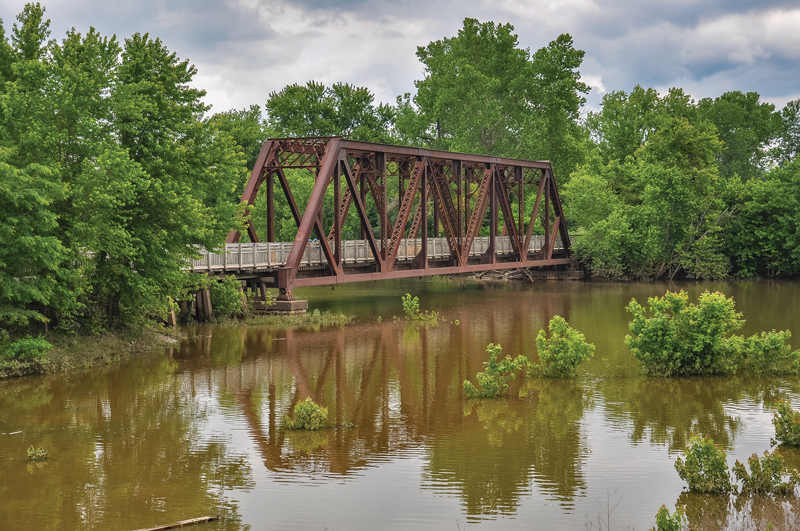
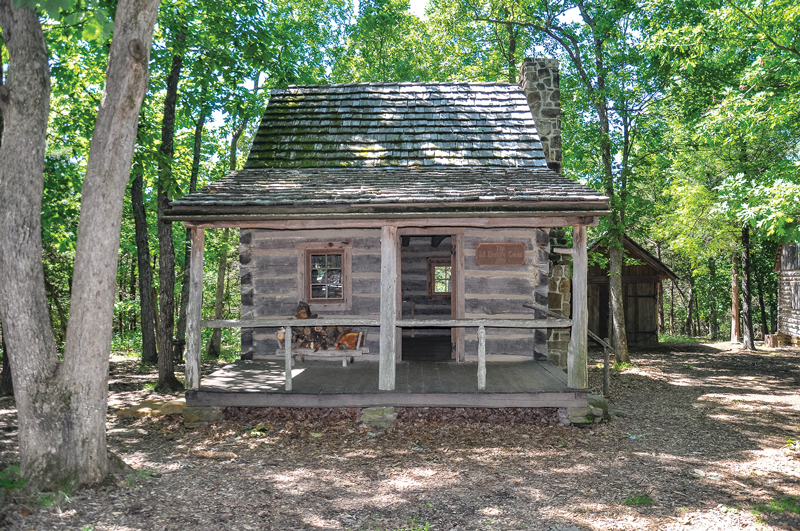
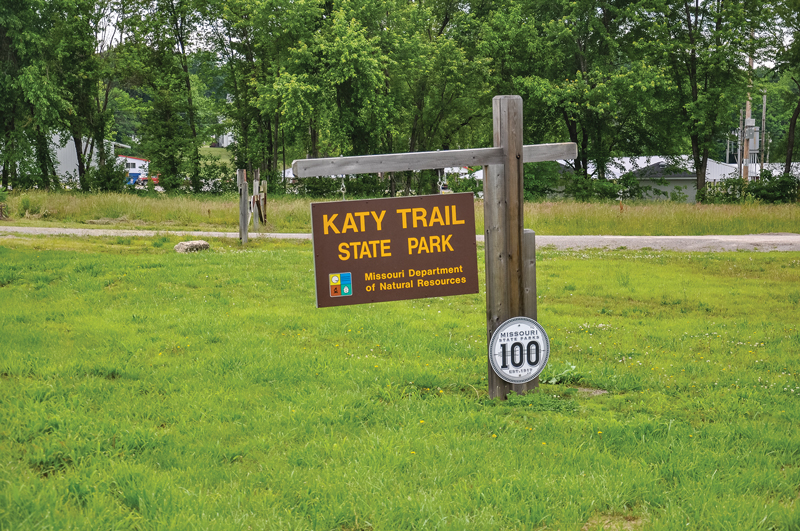
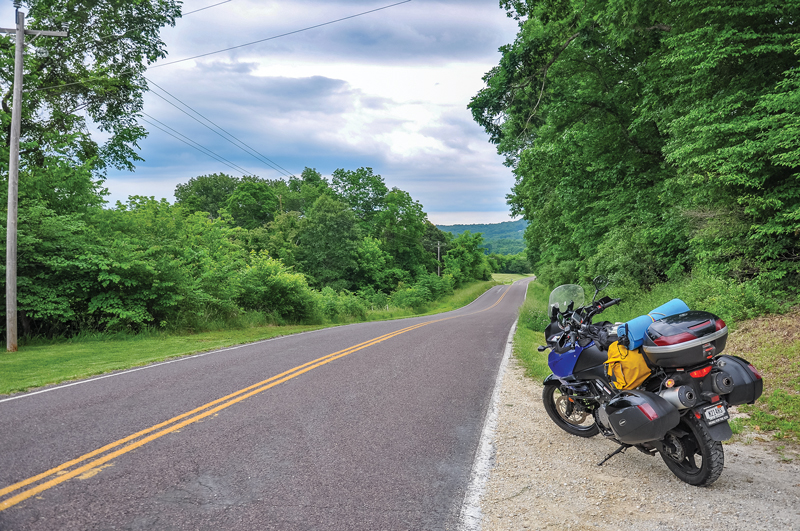
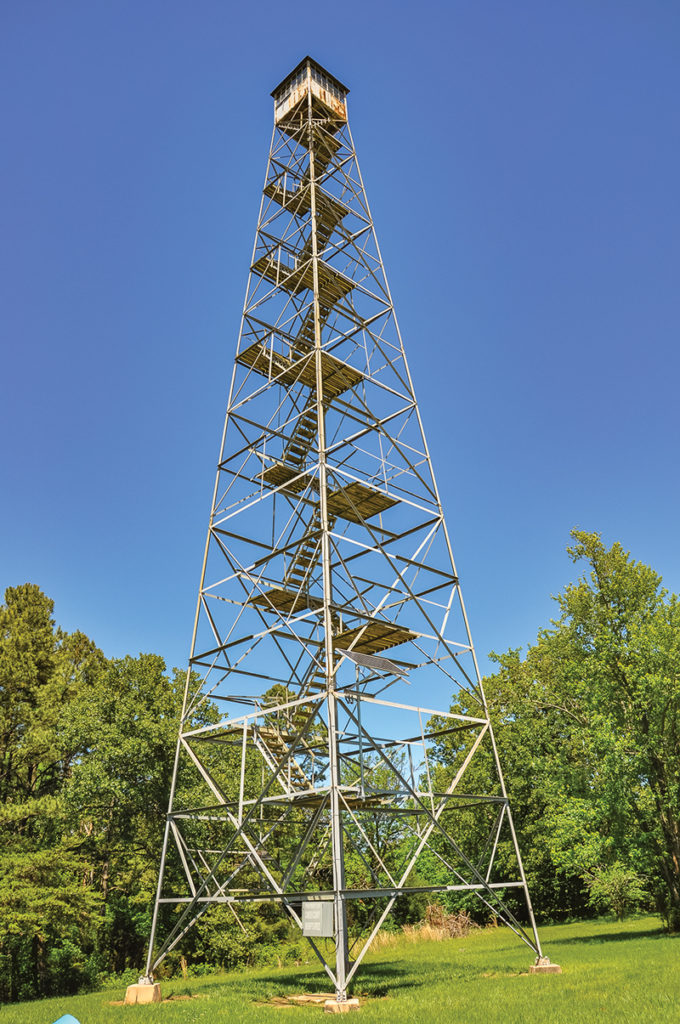




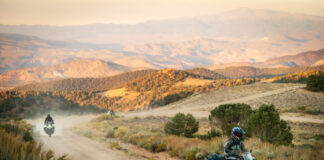

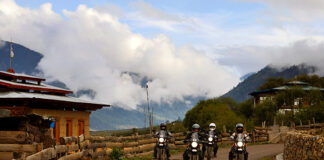

does anyone know about how many miles this trip is?
[…] Show-Me the Way: Riding Missouri’s Great River Road […]